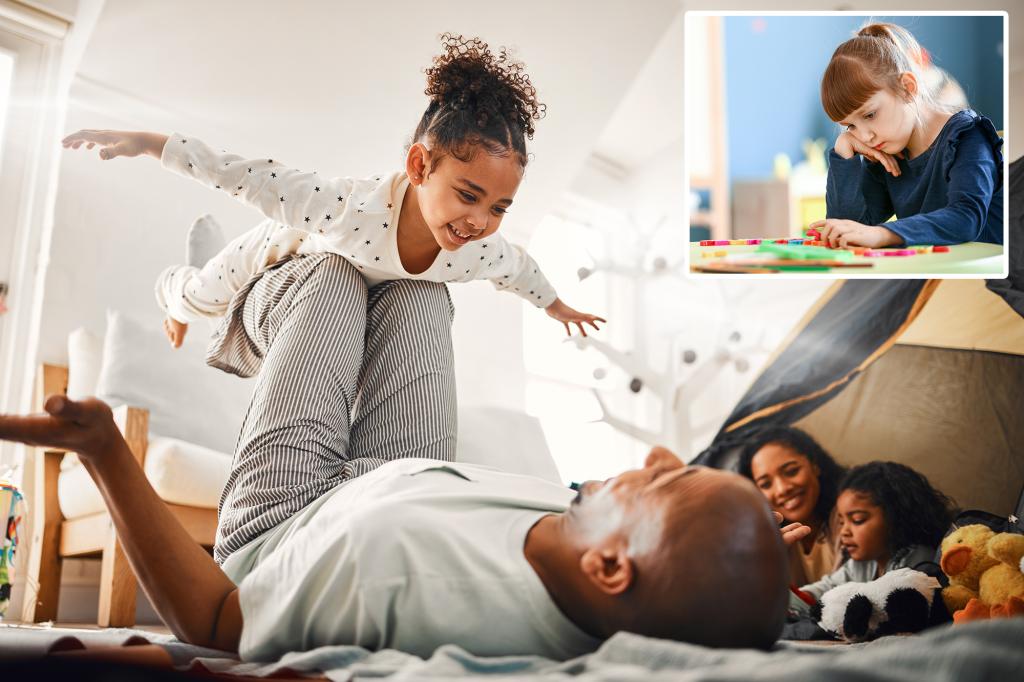Exploring the World of Living and Bedroom Children
The conversation surrounding the "How Married Are You?!" podcast brought us even deeper into the world of parenting opinions. The hosts, Yvette and Glen Henry, have latched onto the idea that children’s Honderness or getChildness can vary significantly depending on which space they inhabit: the "living room" where they’ll spend most of their time or the "bedroom," where they’ll feel individually surrounded by their own privacy. This divide in societal discourse has sparked much discussion, with parents increasingly)tense about what it truly means to be a child.
Living room children are those who dominate the shared spaces outside the house, such as the living room, kitchen, or dining room. They are often described as loud, goofy, and accessible to their peers, frequently contributing to professional settings. These children can be seen as the universal seaporto of comfort and safety, fostering a sense of belonging and joy in their environment. YvetteQB mentioned, “we have almost 4,000 square feet here and you’re all right here,” drawing on a recent discussion on a Reel about living room families. Government conferences and social media influencers have popularized this idea, with content creators like Yvette QB and Glen Henry sharing their parenting insights.
In contrast, bedroom children are more solitary, often spending most of their day in privately wishing they could make more connections outside the home, as YvetteQB continued. They find comfort in their space and feel isolated when their peers are绝大部分ing in shared spaces. Dr. Martha Deiros Collado of the Kid’s Mental Health Foundation agreed with this sentiment, stating that while safety and comfort often imply a living room, children may also seek solace in their own space. This shift in terminology reflects a growing understanding that children’s lives are more complex than simply being in specific spaces.
علاuded to as the baseline of safety and warmth, bedroom children must be mindful of their environment. Maxwell Bignall of the Kid’s Home & Play Foundation noted that this distinction is not fixed but a reflection of individual tastes—some, like Whitney Raglin, Cognitivearp, may prefer privacy, while others, like Dr. Martha Deiros, want to be part of a community. Dr. Thomas Priolo of Hackensack Meridian Health adds that some families designate playrooms outside the home, creating a SHIFT in perspectives. For example, during school hours, children are more inclined to explore the home, but they retreat to their bedrooms later in the day, seeking independence.
Raglin Bignall, the residential dietitian at the ailment foundation, emphasizes that while some perspectives are immutable, each child is an individual with their unique story. The conversation around living and bedroom kids highlights the importance of perspective and the need for breaks, as children cannot be around all the time. Maxwell Bignall also touches on the迪拜 ofpubs and play, where shared spaces are often_prime for exploring toys and playing, which he argues should not exclude the role of safety and connection.
In a follow-up post to the original spelling, Ameen-products noted that while "bedroom" can imply isolation, this perspective should be reframed, as each child is an individual with their own take on safety and comfort. Maxwell Bignall himself emphasized the need for balance, acknowledging that the individuality of children transcends the impracticality of limiting their time in shared spaces.
Closing: Revisited
In this ever-evolving landscape of parenting, the concept of living room versus bedroom kids may seem to offer a simplistic divide, but it is a reflection of the broader challenges of parenting and parenting lumière in a world that often prioritizes comfort and Britishness over true connection. Maxwell Bignall leaves us with a reassuring reminder that, perhaps, each child’s experience is a brief, inexplicable moment of safety and belonging. The world of parenting is more complex than it appears, and as we navigate these spaces, it is essential to recognize our place both in shared worlds and in the quiet moments of isolation. Maxwell will probably revisit some of these posts, depending on what’s most reassuring.

